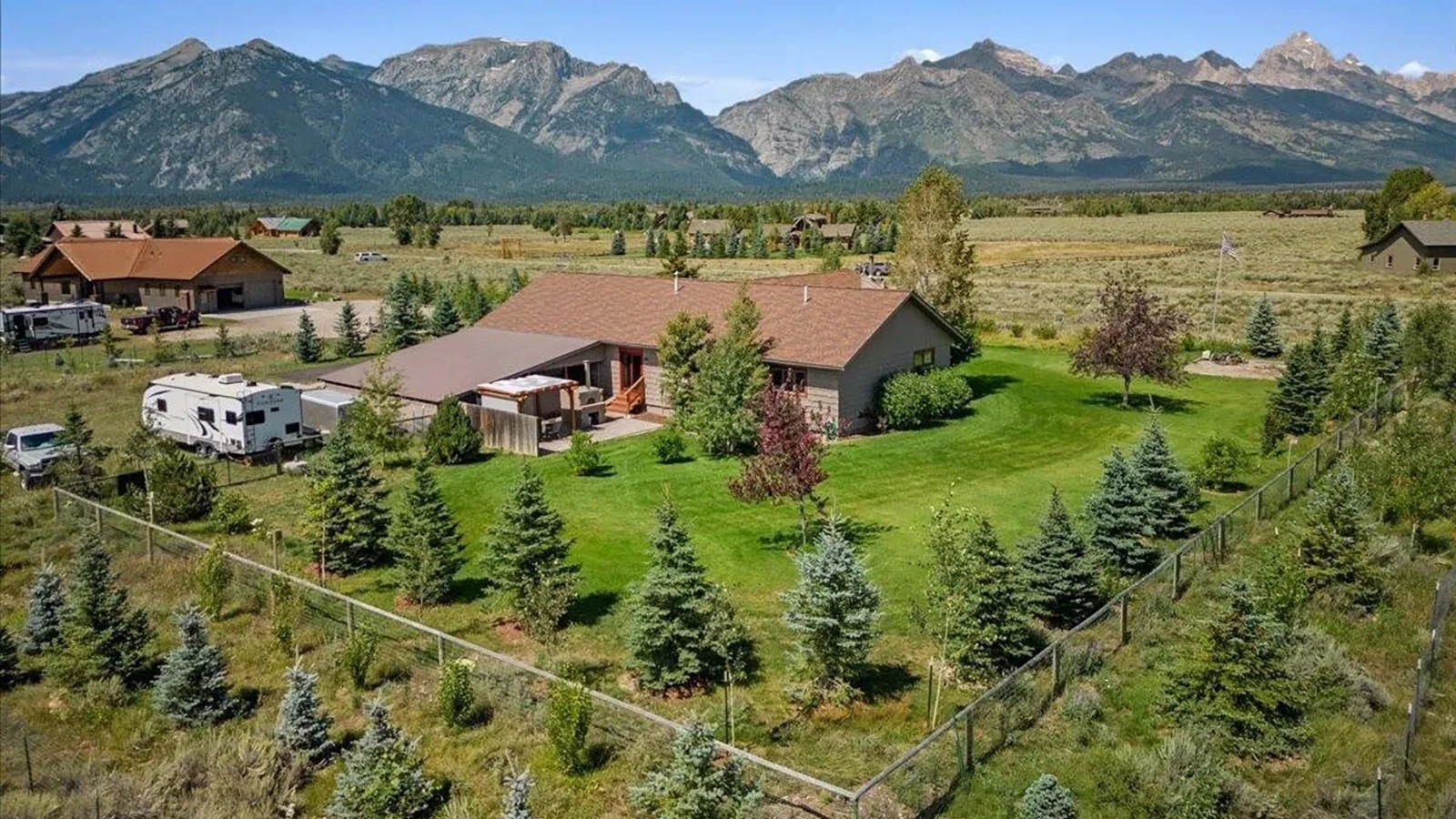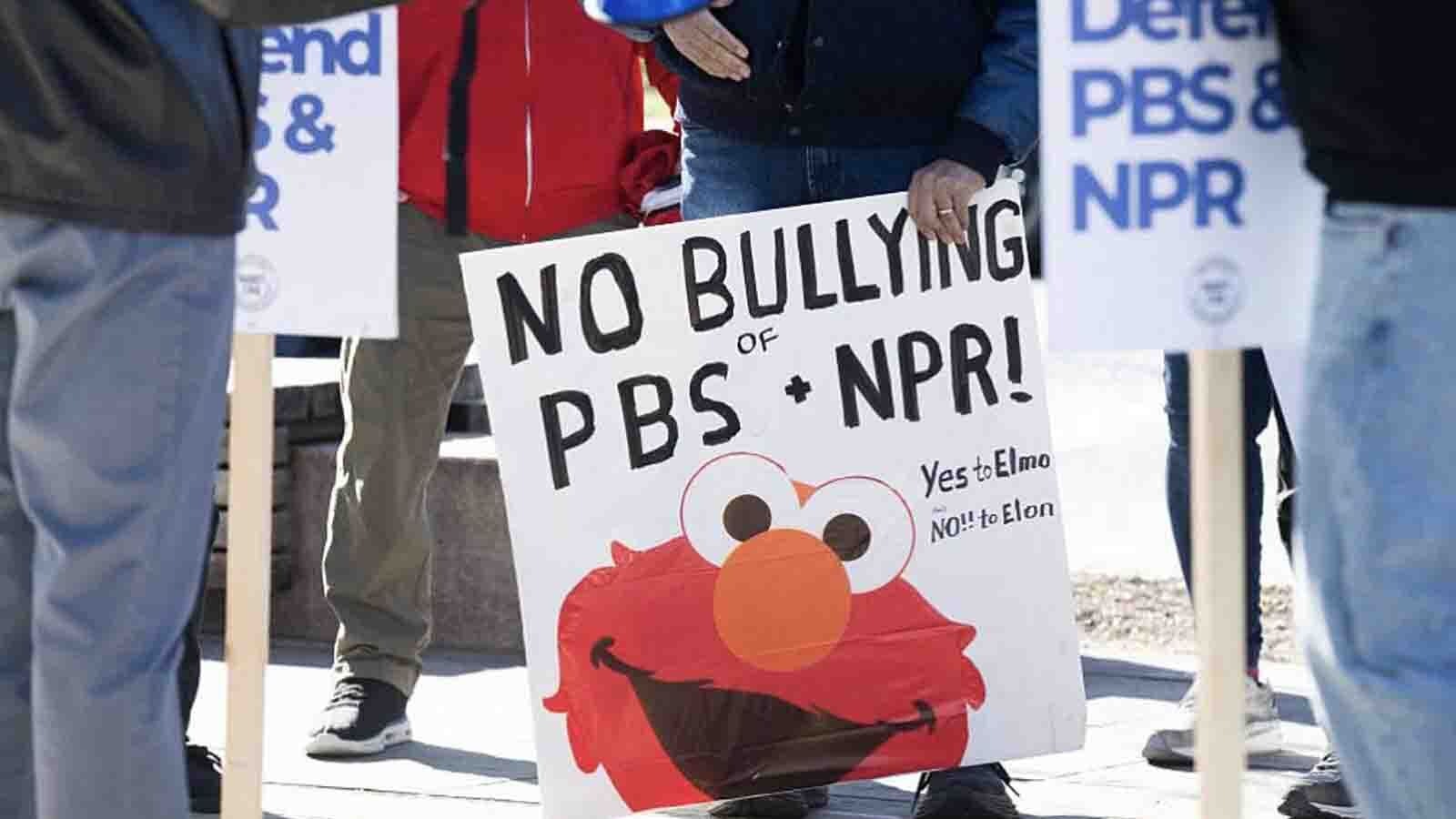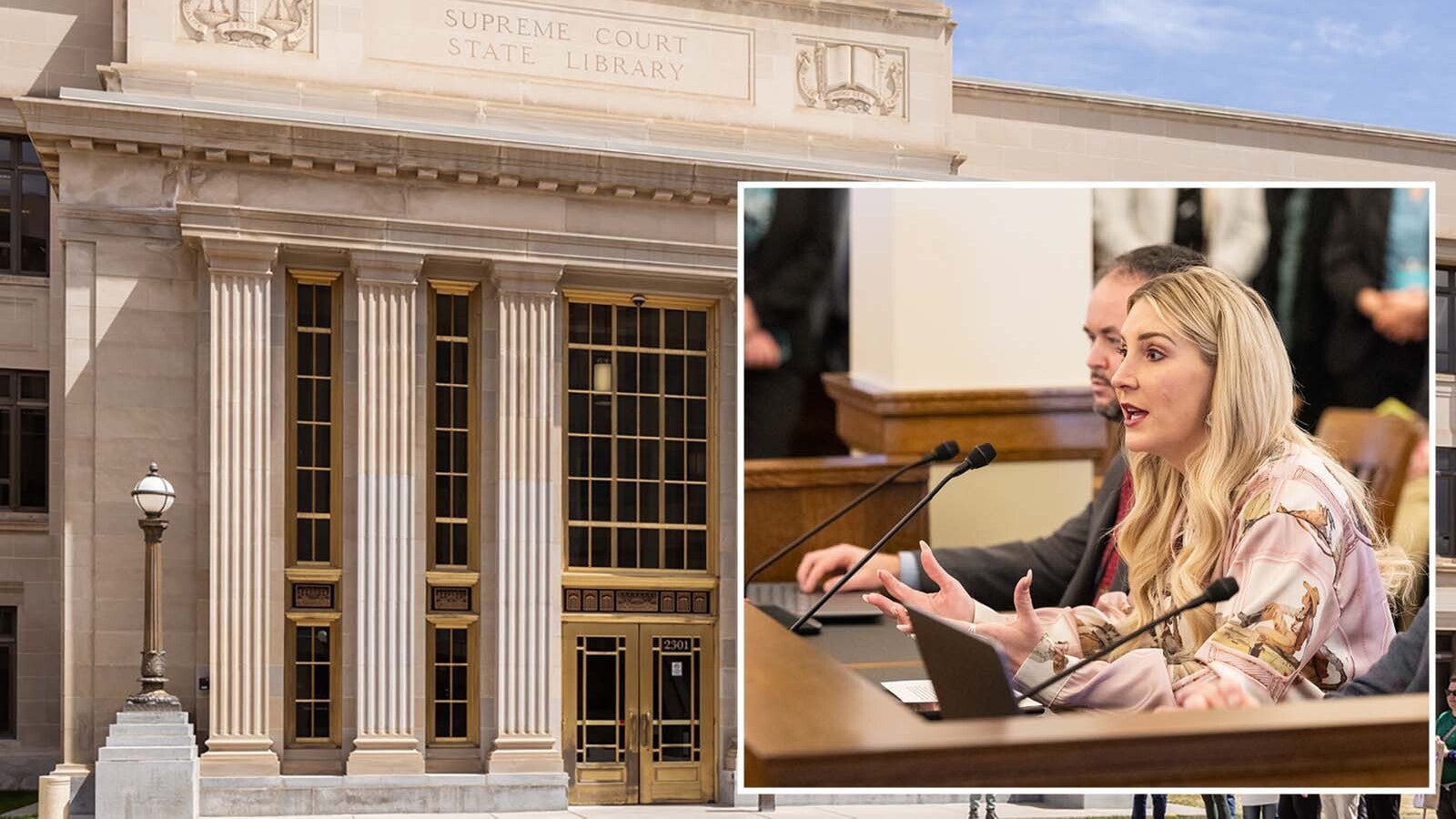That’s what a new ballot initiative campaign led by former Republican governor candidate Brent Bien hopes to accomplish by slashing tax assessments by 50% across Wyoming.
“If there’s one thing this whole campaign is about is freedom,” Bien said.
On Thursday, Wyoming Secretary of State Chuck Gray conditionally certified the “People’s Initiative to Limit Property Tax in Wyoming Through a Homeowner’s Exemption” ballot proposition.
“The people’s right to propose and enact laws by initiative to address fundamental issues, such as property tax limits, is pivotal to our state,” Gray said in a Thursday statement.
What It Would Do
The initiative, if it makes it onto a statewide ballot and voters approve, would allow homeowners in Wyoming to have their entire property taxed at 50% of its assessed value. An applicant would have to be a resident of the state for at least a year and an owner of a home for at least six months. After signing a sworn claim on a first application, the property owner would only have to call the state to get a property tax exemption again in following years.
An applicant could only use the exemption for a primary residence and can only receive an exemption on one property, with only one exemption allowed per property.
Plans to roll out the initiative have been underway for months. One of its organizers, Cheryl Aguiar, said her group received significant help from the Legislative Service Office, Department of Revenue and Secretary of State’s office to make sure it is legal and binding.
“We’re very grateful to the state of Wyoming departments that helped us through the process,” Aguiar said. “We’re hoping the Legislature sees this as the people trying to do something and that we’re not competing with them.”
Sen. Cale Case, R-Lander, believes that if it becomes law, the initiative might be challenged in court as unconstitutional, but would likely face an uphill battle.
“There’s some people in Wyoming that say residents get a pretty free ride on their taxes,” he said.
What Does It Need To Pass
The initiative still must receive 100 sponsor signatures for the petition to become fully certified.
The greater hurdle this effort must reach before qualifying for the 2024 general election ballot is to receive 29,730 petition signatures statewide by Feb. 12, 2024. Within this qualification, an initiative also must receive signatures from 16 of the state’s 23 counties. In addition, it must receive enough signatures to equal 15% of the total turnout in the 2022 general election in each county.
“You lose hope, and hope is a really bad thing to lose, even false hope,” Aguiar said about what she called failures to deal with skyrocketing property tax assessments by the Wyoming Legislature. “You lose hope when you don’t have any power. Hope is huge and that is why this process allows people to go, ‘I can do something.’”
Aguiar isn’t concerned about getting enough signatures, and Bien said the group plans to get many more than the minimum. Aguiar believes the real battle will start once the initiative has qualified to be on a ballot.
“Then we have to campaign for it,” she said. “It’s like campaigning for a candidate.”
A statewide network of volunteers that includes Bien and supporters of his 2022 campaign are spearheading the initiative. Bien finished second to Gov. Mark Gordon in the Republican primary by about 52,000 votes, but did win three counties.
Similar Legislation
Aguiar, who also is chairman of the Hot Springs County Republican Party, said the initiative bears a resemblance to legislation brought by House Speaker Albert Sommers earlier this year that would have given a homestead exemption for homeowners. It’s even closer to a bill sponsored by the Joint Revenue Committee that would have exempted up to $50,000 of a home’s fair market value as long as it did not exceed 25% of the total market value.
The committee bill would have had a $34 million impact in lost revenue on the state.
Sommers’ bill didn’t receive much consideration, but the House Revenue bill passed through the House on a 46-15 vote before being rejected in the Senate Revenue Committee on a 3-2 vote.
Many people expressed disappointment and anger that the Legislature didn’t pass any new laws that significantly revamp the property tax structure in Wyoming. The most extensive change passed during the 2023 legislative session expanded the eligibility pool for the property tax rebate program that’s already in place.
“The majority in our state Legislature sort of let us down last session,” Aguiar said. “Those same people are going to be there in this upcoming session in 2024 and will most likely do the same thing.”
The Legislature also approved a constitutional amendment for the 2024 ballot to add residential real property as a fourth, separate class of property for property tax purposes. Under the amendment, the Legislature would be authorized to create a subclass of residential property for owner-occupied primary residences, which could be assessed at a different rate from other property in the residential property class.
The Legislature could also pass a new law in 2024 that achieves what the ballot initiative aims to accomplish. Aguair said it’s not their intent to create legislative action, but they aren’t opposed to it happening as a result.
“I wouldn’t say we’re just a Plan B, but we’re certainly a Plan A and maybe a Plan B,” Aguiar said.
‘Target’ The Relief
Sommers said he’s concerned that the initiative doesn’t specifically target people in certain groups of income or age. In discussions with LSO, Sommers said he was told the initiative will cost Wyoming $210 million on an annual basis. From that, 26% of lost revenue will come from Teton County.
“I want to try and target relief,” he said. “I’m not interested in giving billionaires property tax relief.”
Sommers is proposing new legislation for 2024 that would bring set amounts of property tax relief based on the age of the person who owns a home, ranging from $50,000 off assessed value for someone 50-60 years old, to $150,000 for someone 70 or older. He believes this would bring a more equitable form of relief.
“By doing that, a really rich person gets a break, but they don’t see nearly as big of a break as a poor person gets,” he said.
Case was a member of the Joint Revenue Committee that developed the property tax bill and describes this new initiative as an effort being pushed by the Wyoming Freedom Caucus. He believes Wyoming has a “very unbalanced tax system” and will face some difficult revenue shortfalls in the future because of the decline in mineral production in the state. Case said the topic of property tax relief must be part of “a bigger discussion” than the initiative can’t provide alone.
Aguiar said she sees the initiative as both a way to respond to what she sees as the Legislature’s inaction on property taxes and a way of supporting this branch of government.
“We the people have your backs and we hope you have ours because the knives are out,” she said. “There are 270,000-something property owners in this state and we’re stepping up. We hope for their support in our fight because we supported them in theirs.”
She believes a short-lived crossover voting initiative she spearheaded helped spur the Legislature to action on this issue during the 2023 legislative session.
Inspirations
Wyoming is a fixed-rate tax state, where taxpayers’ property taxes automatically go up with any increase in the assessed valuation of their property. Property taxes fund local governments and education.
According to NASDAQ, Wyoming has the 10th lowest property tax rate in the nation at 0.55% and 11th lowest median real estate taxes. Homeowners in this state pay $1,452 annually in median real estate taxes, which is $1,343 less than the median real estate taxes paid nationally.
But Bien points to other statistics showing that Wyoming is paying a hefty amount in other taxes.
“This is very contrary to what people are seeing,” he said.
Bien said a recent report from the Rockefeller Institute showing that the Cowboy State pays the seventh most total taxes per capita to the federal government and the most taxes per capita of any Republican-majority state was a big inspiration for pushing the initiative.
This statistic is noteworthy because the state also has the second lowest effective tax rate in the nation.
The mineral royalties that energy producers pay for mining on federal lands is the biggest reason for the large tax hauls. The federal government then remits 50% of these royalties back to the state, which are primarily turned over to local city and county governments.
In 2022, total assessed property values increased in Wyoming by $7 billion.
Although the Joint Revenue bill had an amendment added to it that appropriated $40 million from the general fund to be sent to the School Foundation Program to compensate for lost revenue as a result of the property tax cuts, Aguiar wants no part of that.
“I know the state already has enough (revenue),” she said.
She mentioned how in 2022, Wyoming received an extra $739 million in biennium funding as a result of higher than anticipated energy revenue. Aguiar believes the state should calculate much it needs before collecting taxes, not after.
“It’s what do I have and what can I buy, not get a bunch of money and then know what you want to get,” she said.
Many people walk away from politics and elections after suffering a resounding defeat, but not Bien, who ran his 2022 campaign on a pledge to make “Wyoming the freest state in the nation.” He considers Wyoming a long way from that goal.
“I feel an obligation to the people who supported me,” he said. “All those stories people told me — people were almost kicked out of their homes.”
Leo Wolfson can be reached at leo@cowboystatedaily.com.





